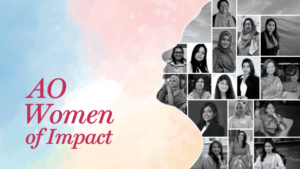
Industry leaders, government officials, and labour rights advocates gathered at the ‘OSH Conference 2025’ in Dhaka on Monday to emphasise the urgent need for bringing Bangladesh’s informal labour sector under comprehensive Governmental regulations. The event, organised by the Department of Inspection for Factories and Establishments (DIFE), marked the observance of National Occupational Safety and Health Day.
Speakers highlighted that occupational safety and health are fundamental human rights, not matters of charity or negotiation. Labour Adviser M Sakhawat Hossain called for all informal sectors, including construction, to be incorporated into formal regulatory frameworks. He warned that sectors failing to obtain Labour Ministry approval risk losing access to Government contracts, underscoring the government’s commitment to enforce compliance.
Syed Sultan Uddin Ahmed, head of the Labour Reform Commission, pointed out that inequalities and insecure livelihoods remain critical issues today. He noted a troubling rise in workplace incidents within the informal sector, contrasting with a decline in accidents in formal industries, and stressed that ensuring occupational safety is essential for industrial sustainability.
Md Imrul Mohsin, Inspector General of DIFE, addressed the often adversarial relationship between owners, workers, and the government. He emphasised the need for a cultural shift towards collaboration, which would prevent opportunists from exploiting labourers.
Taslima Akhter of the Bangladesh Garment Sramik Samhati and Labour Reform Commission member, reiterated that safety and health rights are basic human rights, and called for effective implementation of existing laws.
Faruque Ahmed, Secretary General of the Bangladesh Employers’ Federation, stressed the importance of a concrete, time-bound action plan to enforce safety standards, especially in the informal sector. Rupali Chowdhury of the Bangladesh Business and Disability Network highlighted the gap between legislation and enforcement, citing lack of awareness as a key obstacle.
Chayana Rahman of the IndustriALL Bangladesh Council addressed gender-based harassment faced by women in the readymade garment industry, emphasizing the need for protective measures to safeguard their mental well-being.
Tuomo Poutiainen of the ILO praised Bangladesh’s progress in fostering a safety culture at workplaces, referencing the country’s adoption of key ILO conventions, including Convention No 155 and No 187, as a robust framework for ongoing efforts.
Labour Adviser M Sakhawat Hossain called for effective tripartite collaboration during crises, warning that the absence of accountability hampers safety initiatives. Labour Secretary AHM Safiquzzaman affirmed the government’s commitment to making workplaces safer, noting that the Labour Reform Commission’s recommendations are being translated into a time-bound action plan.
Md Matiur Rahman, Joint Inspector General of DIFE, and Hasnat M Alamgir, Director at Southeast University’s Institute of Research and Training, also presented papers highlighting the importance of policy and research in advancing occupational safety.






